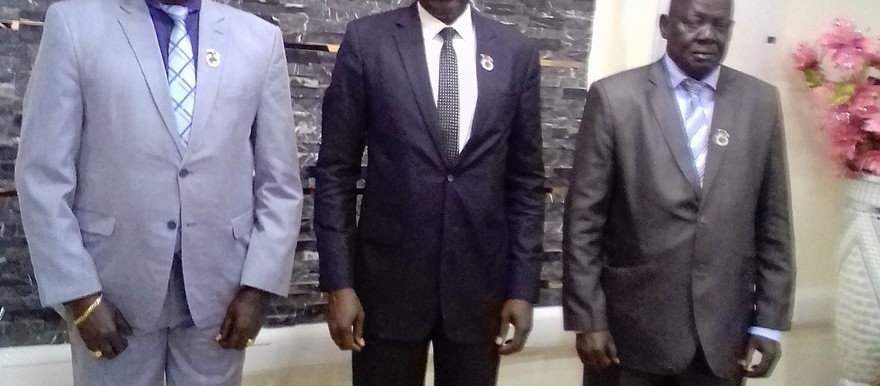The Central Bank of South Sudan yesterday announced it will increase the amount of foreign currency (US Dollars) it injects into the economy weekly from USD 5 to 8 million in a bid to strengthen the South Sudanese Pound (SSP) and stabilize the economy.
The central bank will from next week be auctioning USD 8 million up from the previous USD 5 million every week, with USD 5 million being auctioned to commercial banks and another USD 3 million to forex exchange bureaus.
Speaking during a press conference in Juba on Tuesday, the Governor of the Bank of South Sudan (BOSS), Dier Tong, said the increase in the auction rate is to create more stability in the market after the SSP recently made gains against the US dollar.
“The key point for me is really because we read what is happening to the market, we have decided to increase the amount that we are auctioning both to banks and the forex bureaus. And from next week the auction for banks will be USD 5 million and the auction for forex bureaus will be USD 3 million, all together USD 8 million,” Tong said.
Although the SSP has in the recent past made gains against the US Dollar as a result of the weekly auctioning of dollars to commercial banks and forex exchange bureaus, commodity prices remain high in markets across the country.
Currently, USD 1 goes for 450 SSP pounds in the open market.
In a telephone interview with Radio Tamazuj, an economics analyst, Professor Abraham Matoc who also doubles as Vice Chancellor for Dr. John Garang University, said that the government should regulate prices in the market.
“The prices have to be circulated to stabilize the market. The prices must be checked every time at least to match the living standard of the people not tied to the exchange rate.” Prof. Matoc said. “The question is not if the prices in the market are just rising like that, these goods in the market might be outdated, they might have been bought in 2017 and the prices have increased. They just increase the prices and our people don’t question but they just buy.”
For his part, Edmund Yakani, the Executive Director for Community Empowerment for Progress Organization (CEPO), said the increase of the amount auctioned will not reduce prices in the market.
“This auctioning will not resolve the price issues in the country because prices of the commodities in the country are determined by their buying price,” According to Yakani. “So, what the central bank could have done instead of auctioning this money with an interest of reducing prices is to work with the trade ministry and to bring goods of affordable price and put these goods in the market for prices to reduce. The traders will never reduce the price because they will be in a losing position.”
According to BOSS, all the 22 commercial banks and 56 forex exchange bureaus in the country are eligible to compete in the bidding process without any limitations.




